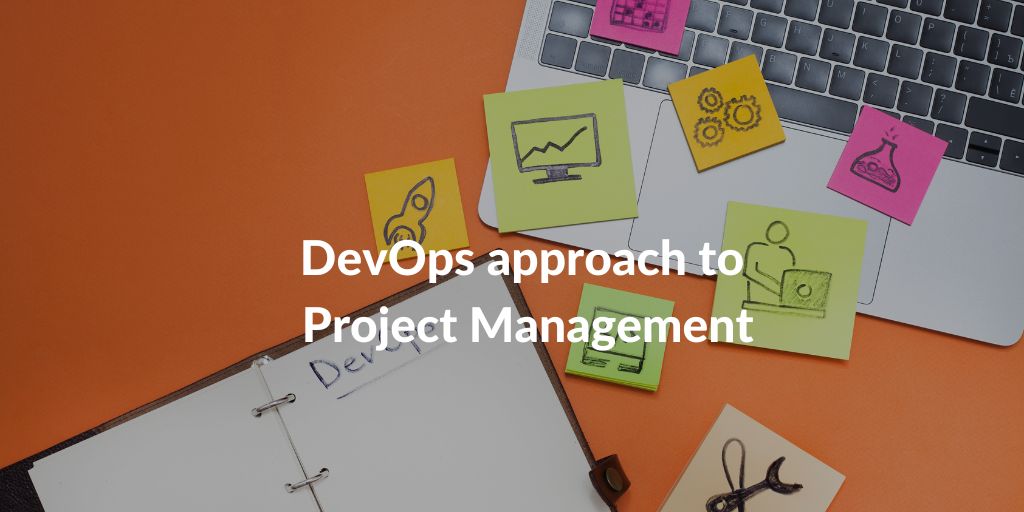Categories
Tags
Newsletter
Subscribe to the QRP International neswletter and get all the news on trends, useful contents and invitations to our upcoming events
Subscribe
As the name suggests, DevOps addresses the gaps between Development and Operations. It seeks to shorten the systems development lifecycle while delivering releases frequently, in close alignment with business objectives in a faster, better and cost-efficient way.
At first sight, it might look like that Project Management and DevOps are very different in nature, as DevOps is all about continuous integration/continuous deployment (CI/CD) while Project Management has a clear start and end point. However, they can fit together and can help bring greater value to the organisation.
DevOps is a movement represented by the convergence of existing IT best practices from ITIL®, Lean, and Agile into a development and operations approach that supports automation and continuous delivery. It also encourages a culture of collaboration and learning to help deliver business value better, faster, and cheaper than ever before.
The DevOps approach to work is based on three critical success factors: cultural shift, improvement of practices and processes and leverage of automation and technologies.
Project management can be defined as the discipline of applying specific processes and principles to initiate, plan, execute and manage the way that new initiatives or changes are implemented within an organisation. Project Management differs from business as usual (BAU), as it is a temporary venture.
Project Management is an important pillar within any company and has been recognized as one of the fundamental factors for the success of an organisation. There are two main methodologies within project management, the more traditional ‘Waterfall methodology’ and the ‘Agile methodology’. What works best for an organisation all depends on their situation and strategic objectives.
DevOps Project Management is a union between the two Best Practices. Project Management seeks to support the DevOps practices and is tailored to the methodology. That means that within DevOps Project Management, the Project Manager fills in a very important role, as stakeholder coordinator and tracker of timelines and dependencies. However, the Project Manager also needs to completely understand the development process, in order to align with the DevOps team.
DevOps methodologies help visualise the entire development process, from initial ideas to deployment. This helps Project Managers with handling their projects more efficiently. It allows them to take responsibility for organising tools, motivating the team and creating the overall strategy.
The integrated approach of DevOps Project Management influences the speed of delivery in different teams at the same time. Which, automatically, results in an increase of the speed of development, delivery of services and go to market.
The Project Manager is accountable to plan, run and execute the project. He/she is assigned to lead the project team to achieve the project objectives. A Project Manager in a DevOps environment on the other hand, needs to fully support the DevOps environment. But he/she also needs to understand the development process in order to align with the DevOps team.
He/she needs to have strong social and communication skills, in order to help sustain the communication between different departments. This is not only crucial for the timeline of the project, but also highly important for the cultural shift that DevOps seeks to imply. DevOps metrics are more qualitative factors then a traditional Project Manager usually focuses on and need to have special attention.
The DevOps Project Manager needs to understand the complete lifecycle of both the development and the deployment phase of the project. He/she manages the integration, flow of development and coordination/deployment of the project. For that the DevOps Project Manager needs to be aware of the abilities required to produce the final product. The DevOps Project Manager works on the technical details, whereas a traditional Project Manager would only focus on the general process.
A Project Manager within a DevOps environment is also skilled in Agile ways of working, which include the planning and guiding of sprints and/or daily stand up meetings. In order to support the DevOps team, he/she will definitely need to embrace the Minimal Viable Product mindset. The goal of MVP is to minimise the effort and time in product development.
Last but not least, automation is a must in DevOps to scale the impact of the team’s effort. A DevOps Project Manager should be able to use different tools and motivate the team to follow his/her example.
In order to improve the workflows between development and IT, DevOps is the methodology to master for professionals. DevOps Foundation offers a basic understanding of DevOps, while DevOps Leader is designed for those that aspire to lead a cultural shift towards a DevOps environment.
Sources:
Axelos: What is Project Management
Hubspot: DevOps Project Management